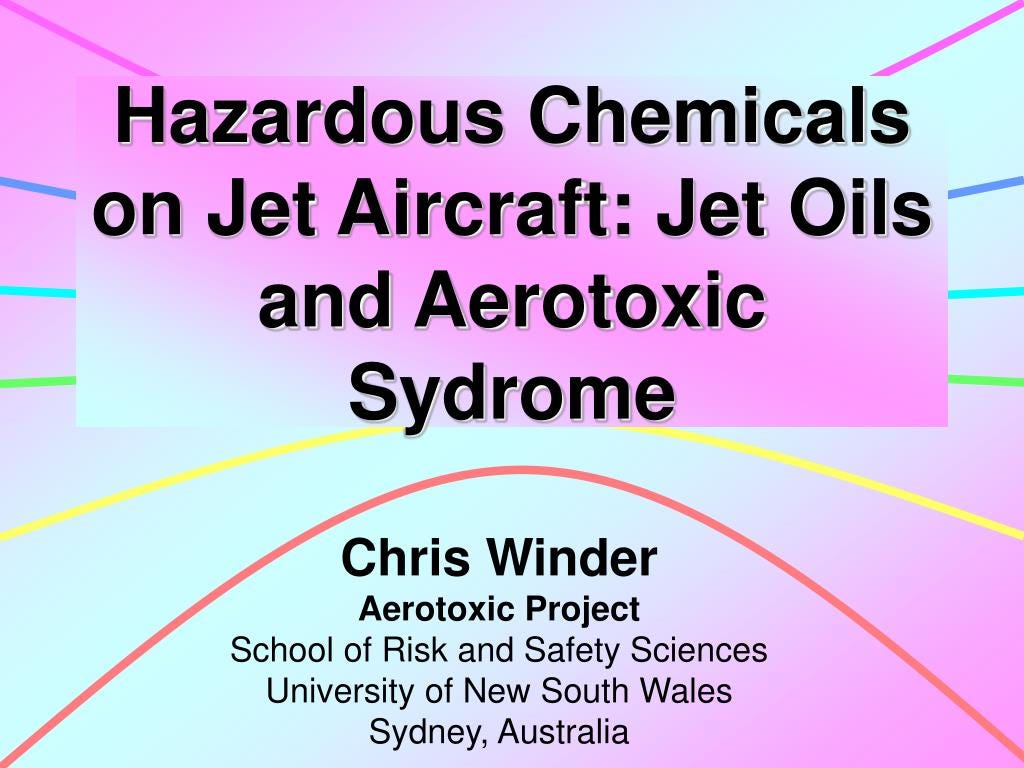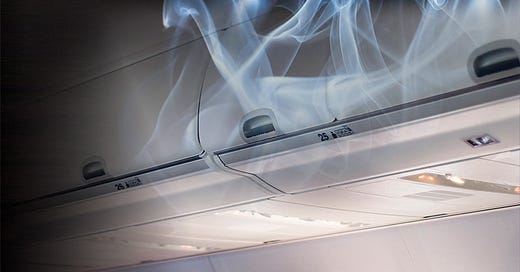As first reported by MEDIAPART France, on October 20, 2023, the Bordeaux Judicial Court recognized the causal link between this illness and occupational exposure, for yet another affected pilot. The judge relied in particular on the medical expertise of the head of the occupational and environmental pathologies department at Nantes University Hospital, according to whom the disorders reported by the pilot "are part of an ‘Aerotoxic Syndrome’ caused by the short- and long-term effects of exposure to oil-fumes-contaminated air in aircraft cabins.
However, as previously mentioned in other articles of mine don't look for ‘Aerotoxic Syndrome‘ in the international occupational disease classification tables (ICD-10): it is still not/not yet listed there. You can find my articles on the subject on my Academia.edu website here and here. The term Aerotoxic Syndrome (AS) was coined in 1999 and described as a medical condition by three scientists from France, the USA, and Australia who had independently of each other come to the same conclusions and then networked and put their findings together. AS is a collection of very diverse symptoms reported by aircrews who have been victims of cabin and cockpit air contamination events which are commonly referred to as "fume events".
Fumes often contaminate the air in aircraft cabins. This is a well-known phenomenon, but its health impact is disputed by the airline industry.
Now, pilots who were dismissed or “medically retired” due to incapacity have succeeded in having the causal link between their illness and polluted air recognized. This is huge success and a major step forward.
According to the aviation industry, “only” one flight in two thousand is affected by a fume event. This frequency is underestimated, and the fact of a practically constant low-level air contamination is completely denied and ignored, or deemed “under legal threshold levels and therefore not dangerous to human health”. According to an investigation by the Los Angeles Times, in the two years between 2018 and 2020, 362 fume events were reported to NASA, four hundred people - pilots, flight attendants, and passengers - required medical assistance, and forty-eight pilots were unable to continue to perform their duties.
For NASA, this is just the "tip of the iceberg", as these declarations are made voluntarily.
Not only in the USA but also in France, Germany, the U.K., and elsewhere, under-reporting is systematic. For fear of losing their licenses and therefore their job, as well as the salary and the prestige associated with their profession, pilots often prefer not to report incidents and keep quiet about the effects on their health.
As for ‘Lucien’, the pilot mentioned in the MEDIAPART article (admin: his name has been changed), he can testify to the impact of smoke events, having suffered two very severe ones. In 2012, during a flight from Asturias to Paris, the pilot felt ill: "All the screens started spinning, I had cold sweats, palpitations, tingling..."
At the airport, the medical service diagnosed him with barotraumatic otitis. From then on, he had to take a lot of time off work. "A former rugby player, I bite the cushion, I continue to fly, but my health keeps deteriorating.” (sic, translated)
In 2015, an even more severe fume event finally grounded him. "We're on a Strasbourg-Bordeaux flight and the plane stinks! On top of the 'usual mess' [the aches and pains he suffers from daily dizziness, confusion, nausea, muscle pain - MEDIAPART editor's note], I get a terrible migraine. We landed the plane, my colleague threw up on the wheels and I was knocked out!” (sic, translated).
In 2016, at his annual medical check-up, the doctor refused to sign off Lucien’s flight clearance: "I was too damaged, I couldn't walk anymore." (sic, translated)
A report published on October 25 by France's “Agence Nationale de Sécurité Sanitaire de l'alimentation, de l'environnement et du Travail” (Anses) has dashed some of their hopes. Referred to by AVSA and the pilots' unions in 2019, the agency confirmed rather loosely that "multiple sources of pollutants have been identified in aircraft cabins, which may be linked to the materials used, the operation of the aircraft and in particular the ventilation system, the operations carried out on the ground and in flight, etc.", but concluded that there was a "low level of evidence of a syndrome specifically linked to exposure [...] to pollutants from engine oil leaks". This phrasing confirms in a roundabout way the presence of pollutants, but “by multiple sources” and once again health effects are being downplayed.
This is unacceptable to AVSA and to all the victims who have suffered such severe injuries and the loss of much-loved careers. AVSA denounces the report as "incomplete" and "full of inconsistencies".
Like Lucien and all victims of toxic fumes, the association fears that the Anses’ opinion will backfire in their legal battles. Due to this they will not stop here and continue gathering and presenting evidence.
Read the full article published by MEDIAPART here in French on their page, or here.
For more in-depth information or if you are seeking help, please contact AVSA (French) and check out the website UNFILTERED (English and Spanish), where you can find science, testimonies court cases, documentaries, medical and laboratory protocols, books, and more. Please also support our petition (several languages).






